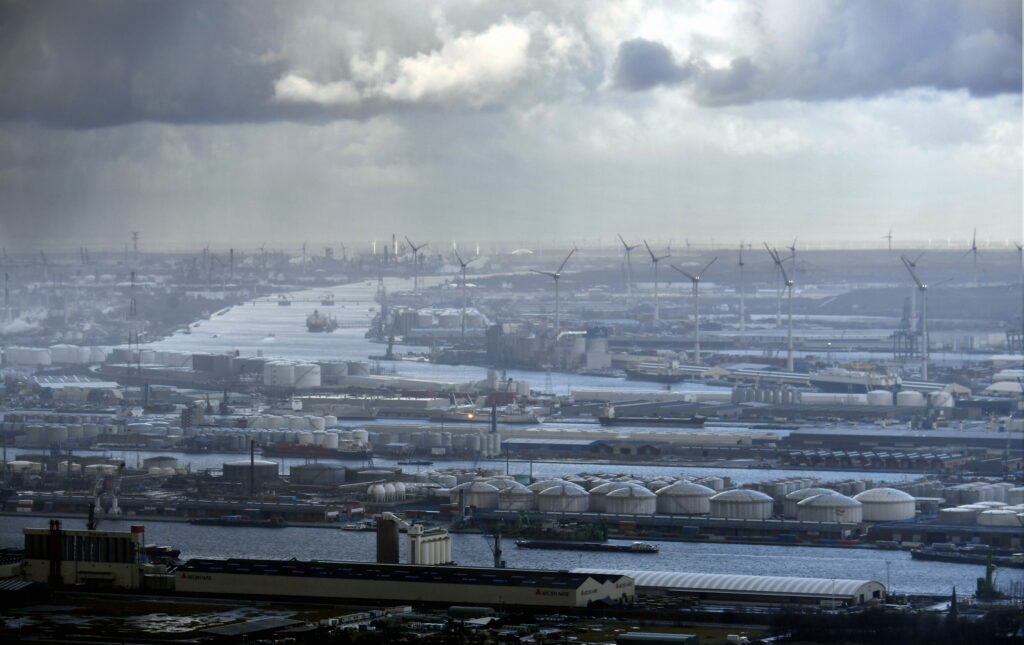Belgium's manufacturing industry could be impacted "substantially" if imports of critical materials from China and similar countries were to suddenly be cut off, according to the central bank.
A working paper by the National Bank of Belgium (NBB) has highlighted how the disruption to the supply of foreign critical imports (FCIs) to Belgium might affect the value of the manufacturing industry and the overall economy.
FCIs are materials primarily sourced from countries outside the EU from a small concentration of suppliers, advanced technology products, or materials that are key to the green transition.
Global events such as the pandemic and the Russian invasion of Ukraine have highlighted how vulnerable the euro area is in terms of its reliance on foreign inputs.
Critical raw materials
A recent survey by the European Central Bank found that 41% of leading European firms are exposed to China through imports of critical inputs; among these firms, 90% estimate that these critical inputs are difficult to substitute.
The European Commission maintains an evolving list of critical raw materials that are highly important to the EU economy, and in May of this year the European Critical Materials Act came into force.
The Act aims to shore up domestic supply of materials within the EU, reduce over-reliance on single suppliers, and ensure a "secure and sustainable supply" of raw materials that are vital for the EU economy.
The NBB has highlighted that a 50% reduction in FCIs from China and other countries with similar geopolitical orientations would result in a "sizeable" loss of value added to manufacturers – although the potential impact varies across different companies, sectors, regions and countries.
Belgium's manufacturing sector could lose around 2% in value added (the difference between the cost of inputs and the market value of final products) if imports from China and similar countries were suddenly halved.

A factory operated by Procter and Gamble in Belgium. Credit: Belga
Among five EU countries examined in the NBB report (Belgium, France, Italy, Slovenia and Spain), Belgium faces the least impact. In Italy, the potential loss in value added rises to 3.1%.
Looking at the overall Belgian economy, the impact of a "shock" reduction of imports is slightly less and would result in a roughly 1.5% drop in value added.
The report notes that for Belgium and Spain, a drop in supply of FCIs would have a bigger impact on machinery and equipment industries than in other countries.
The NBB recommended that a "sourcing framework" be established at a company level, to help further estimate the impacts of FCI supply disruption. It said that there is also potential for cross-country collaboration to create a global map of supply networks.
Managing risks but maintaining economic ties
A spokesperson for Flemish business association Voka said that while it is important to maintain economic ties with China, risks need to be managed "more strategically and assertively".
Voka advocates for "de-risking" rather than completely cutting ties with Chinese suppliers, to selectively reduce dependencies for critical sectors but continue beneficial trade.
"Belgium should continue to welcome Chinese investment and trade in non-sensitive sectors but apply stricter controls on areas linked to strategic technologies, data security, and critical infrastructure," said the Voka spokesperson, noting that companies should also diversify their supply chains to mitigate over-reliance on China.
"Belgium should seek a more assertive stance in defending its economic and political interests, ensuring that engagement with China is based on reciprocity, transparency, and fair competition. Especially in those areas where there’s a flagrant overproduction from China based on destabilising third markets," they added.

